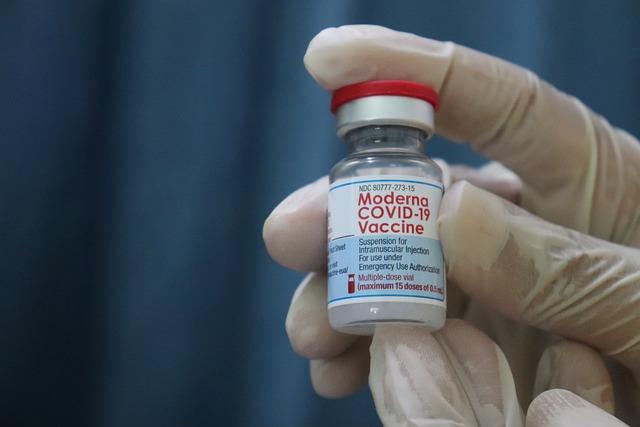Introduction
in a meaningful stride towards bolstering healthcare resilience across the continent, the African Union is set to convene the 2nd Vaccines and Other Health Products Manufacturing Forum, aimed at member states of the African Union. organized by the Africa Centres for Disease Control and Prevention (Africa CDC), this pivotal event seeks to enhance the capacity for local vaccine production and address the pressing health challenges faced by african nations. With the COVID-19 pandemic highlighting critical supply chain vulnerabilities, this forum will serve as a platform for dialogue, collaboration, and innovation among stakeholders, including government officials, health experts, and industry leaders. As Africa confronts both existing and emerging health threats, the forum promises to play a crucial role in laying the groundwork for sustainable health solutions that prioritize self-sufficiency and equitable access to lifesaving products.
Overview of the 2nd Vaccines and Other Health Products Manufacturing Forum

The 2nd Vaccines and other Health Products Manufacturing Forum convened under the auspices of the African Union seeks to bolster the continent’s self-sufficiency in health products. This forum comes at a critical juncture when the global demand for vaccines and health products has surged, underscoring the need for robust local manufacturing capabilities. Key stakeholders from various sectors, including government officials, industry leaders, and health organizations, gathered to share knowledge, best practices, and strategies. Among the objectives were:
- enhancing capacity: developing local manufacturing infrastructure and expertise.
- Collaboration: Fostering partnerships between public and private sectors.
- Innovation: Emphasizing research and growth in the health domain.
During the forum, participants engaged in discussions around regulatory frameworks, financing mechanisms, and technology transfer to facilitate effective production lines across the continent. The emphasis was on sustainability and adaptability in response to evolving global health challenges. The forum also underscored the importance of equitable access to vaccines and health products as a fundamental right for all Africans. A key takeaway from the sessions was the collective commitment to:
- Strengthening Health Resilience: Building capacities to withstand future pandemics.
- Boosting Local Economies: Creating jobs and supporting community health initiatives.
- Enhancing Health Security: Ensuring uninterrupted supply chains for essential health products.
Key Outcomes and Agreements from the Forum Discussions

The discussions held during the forum yielded significant insights aimed at strengthening the vaccine and health product manufacturing capacity across African Union member states.Key agreements included:
- Collaboration Framework: Establishing a collaborative network among member states to share resources,expertise,and technology in vaccine production.
- Investment Mobilization: Commitments to mobilize financial resources from both public and private sectors to enhance local manufacturing capabilities.
- Regulatory Harmonization: Initiating steps towards regulatory alignment to facilitate smoother cross-border trade and approval processes for vaccines.
- Capacity Building: Plans for training programs dedicated to upskilling the workforce in biomanufacturing and quality control processes.
Moreover,member states emphasized the necessity of establishing robust supply chains to ensure timely distribution of vaccines. A proposed framework for monitoring and evaluation has been endorsed to assess progress regularly. The forum also underscored the importance of:
| Focus Area | Action Item |
|---|---|
| Research and Development | Encourage partnerships with research institutions to innovate new vaccines. |
| Public Health Awareness | Launch campaigns to educate communities on vaccination benefits. |
Strategies to Strengthen Local Vaccine production in Africa

To bolster local vaccine production across Africa, several strategic initiatives can be implemented. Firstly,enhancing public-private partnerships is crucial in ensuring that resources,knowledge,and innovation are shared effectively between governments and institutions. By fostering collaborations with global pharmaceutical companies, local manufacturers can gain access to vital technologies and expertise necessary for producing vaccines efficiently. Additionally, investment in infrastructure development is essential; strengthening facilities for research, manufacturing, and distribution can significantly improve local capacity.
another key approach involves the establishment of regional manufacturing hubs. By concentrating resources and expertise in specific areas, African countries can optimize their production capabilities while also reducing costs through economies of scale. Moreover, training and education programs focusing on biotechnology and pharmaceutical manufacturing should be prioritized to build a skilled workforce. Lastly, advocating for favorable regulatory frameworks can simplify the manufacturing process, attracting investment and facilitating quicker market entry for new vaccines.
Collaboration Opportunities Between African Union Member states

The 2nd Vaccines and other Health Products Manufacturing Forum serves as a vital platform for African Union member states to explore and enhance collaborative efforts towards sustainable health product manufacturing. These collaborations can foster innovation,share best practices,and mobilize resources effectively. The need for resilient health systems within Africa highlights the importance of networked partnerships which may include:
- Joint investment initiatives to boost research and development.
- Knowledge sharing through regional health manufacturing workshops.
- Strategic alliances with global health organizations for technology transfer.
- Pooling resources to create shared manufacturing facilities.
- Enhancing local capacity through workforce development programs.
Member states are encouraged to utilize existing frameworks and create new agreements that strengthen intra-africa trade in health products. Engaging in public-private partnerships could significantly amplify these efforts. Some potential partnership opportunities to consider are:
| Prospect Type | Description |
|---|---|
| Research Collaboration | Co-developing clinical trials for vaccine candidates. |
| Manufacturing Agreements | Sharing facilities and expertise to reduce costs. |
| Supply Chain Management | Optimizing resource distribution across borders. |
| Training Programs | Establishing workforce training and development schemes. |
Recommendations for Policy Enhancements in Health Product Manufacturing

To elevate the standards of health product manufacturing across african Union member states, it is imperative that policies address critical areas within the industry. Investment in infrastructure development should be prioritized, enabling manufacturers to adopt advanced technologies and comply with international quality standards. Moreover, streamlining regulatory processes will facilitate faster approval times for health products, ensuring that life-saving vaccines and treatments reach the market without unnecessary delays. Stakeholders should also advocate for public-private partnerships, fostering innovation and collaboration that can harness the strengths of both sectors for enhanced production capabilities.
Another area that warrants attention is the provision of training and education programs for the workforce. Qualified personnel are essential for maintaining quality assurance and control within manufacturing facilities. Establishing standardized training modules can promote a skilled labor force while ensuring that best practices are shared widely across the continent. Additionally,creating incentives for local production of health products can stimulate the economy,reduce dependency on imported goods,and ultimately strengthen community health resilience.
The Role of Technology and Innovation in Advancing Africa’s Health Sector

The landscape of healthcare in Africa is undergoing a remarkable transformation,driven by advancements in technology and innovation. With the rise of digital health solutions, health information systems, and telemedicine platforms, access to healthcare services has become more equitable, especially in remote areas. Innovative tools such as mobile health applications are facilitating timely communication between healthcare providers and patients, making it easier to manage chronic diseases and improve maternal health services. Moreover, data analytics and artificial intelligence are being employed to predict disease outbreaks and streamline response strategies, ultimately saving lives and resources.
Collaboration is key to harnessing these technological advancements. Stakeholders, including governments, private sectors, and non-profit organizations, are increasingly investing in local biotech firms and pharmaceutical manufacturing capabilities. Such partnerships aim to boost the continent’s self-sufficiency in health products, reducing dependency on imports and enhancing product delivery. The significance of initiatives focusing on:
- Vaccine Development: Encouraging local manufacturing to ensure availability during health crises.
- Research and Development: Fostering innovation in local labs to tailor solutions specific to African health challenges.
- Training and Capacity Building: Equipping the workforce with the necessary skills to utilize new technologies effectively.
The continued commitment to integrating technology into health systems is vital for achieving worldwide health coverage across the continent. As African nations invest in modernizing their health infrastructures, the potential for improved health outcomes is enormous, setting a foundation for sustainable health solutions that can withstand future challenges.
Final Thoughts
the 2nd Vaccines and Other Health Products Manufacturing Forum for African Union Member States,organized by the Africa CDC,marks a pivotal step towards self-sufficiency in health product manufacturing across the continent. As the forum fosters collaboration,knowledge sharing,and innovation among member states,it underscores the urgent need for Africa to build robust health systems capable of responding to future public health challenges. By prioritizing local manufacturing capabilities,African nations can enhance their resilience against disease outbreaks and reduce dependencies on global supply chains. The discussions and commitments made during this forum not only aim to improve health security but also to empower the continent to take charge of its health narratives. As stakeholders look to the future, it is imperative that the momentum generated here translates into actionable strategies, ensuring that Africa is prepared to meet the needs of its people in the face of evolving health threats.







